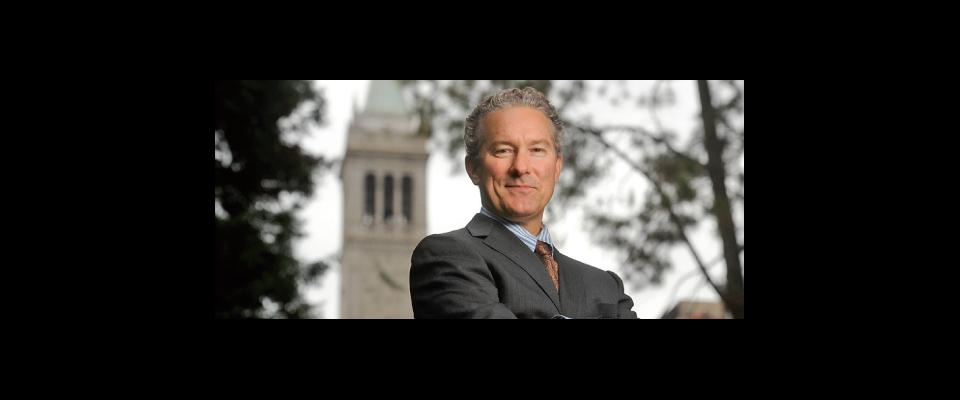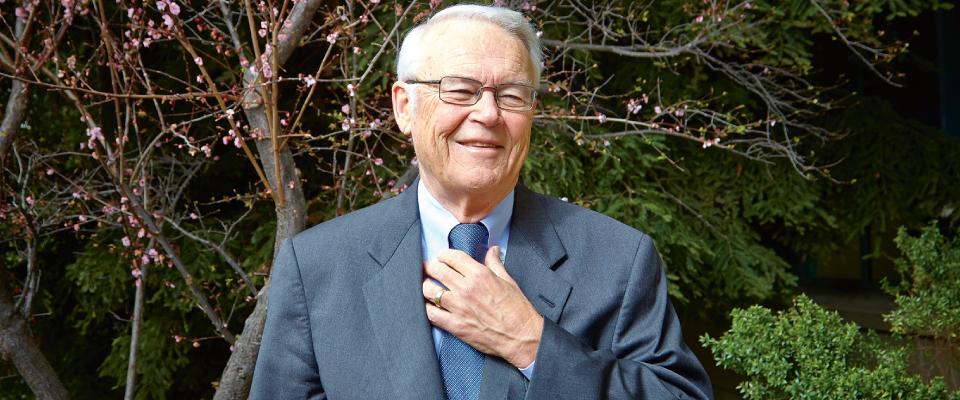Rich Lyons, Bank of America Dean, Haas School of Business
1. After the release of this year’s Academic Rankings of World Universities, you Tweeted, “Berkeley among the top 5 university brands.” That caught my attention because the word brand wasn’t part of the rankings. Why add it?
Rich Lyons: We use the word reputation a lot as a university and we use it well. I use the word brand because there’s an identity piece to reputation that goes beyond the way academics think about it. Experts in branding—and I’m not one—have this notion that reputation can be valued and managed as an asset. It’s actually on many balance sheets. So if we are going to talk about the real value of our identity as a university, then talking about it as a brand is a perfectly sensible thing to do, even if it makes some of us uncomfortable.
2. You talked about managing the brand as an asset. I suspect most brand managers would cringe over some of the things that Berkeley is associated with—the culture of protest, for example, and the whole ’60s counterculture that put Berkeley on the map for a lot of people.
Right. It’s inextricable. Inextricable! Berkeley has a very distinct culture, and in fact a lot of people choose us because of our distinctive culture. So as a business school, we said, “OK, this is an opportunity. Let’s take this seriously. If culture matters, if it’s a separator, if we’re going to compete on culture, then let’s go for it.” So we spent a couple years doing focus groups, talking to people and asking, “Well, what is Berkeley about—and Berkeley-Haas specifically?” Suppose we said, as a business school, that one of our core values was Question Authority? Well, look, that’s a Berkeley association that doesn’t work for us. But one of the defining principles that we wrote down was Question the Status Quo. Bam! Suddenly, every business out there says, “I want that! I’ll hire your graduates!” It’s doing a judo move on something. And it’s not something everyone can say. Harvard Business School is arguably the best business school in the world, but they could never put Question the Status Quo on their masthead. Another example: An employer came to us and said, “You know why I love hiring graduates from this business school? Because your graduates have confidence without attitude.” Bang! Many of the world’s greatest business schools have the opposite reputation in the marketplace. So, that’s really valuable. If you can look at your toughest competitors and say, “I can tack something to the wall that’s meaning-making for me, that resonates because it’s really here, that my competitors can’t say,” that’s going to attract students. But it’s also easy to say, “Oh, that brand crap? I don’t need to think about that.”
3. So, is the business school brand now Berkeley–Haas?
Yes, it is. In the last year and a half we made that shift. I lived in New York before I came back to Berkeley and if you say “Cal” in New York a lot of people don’t know what you’re talking about. More importantly, you could say “Haas,” and if somebody was in the know, they might say, “Well, that’s Berkeley, isn’t it?” So, Berkeley, that’s where all our brand value is. Why not lead with it? Haas is just a sub-brand and Berkeley–Haas kind of nails it. I’ll tell you another story: There was an admit to our MBA program who had also gotten into Kellogg [Northwestern University’s management school]. And this person was talking to one of our first-year students who had also gotten into Kellogg but chose to come to Haas instead. So this admit said to the first-year student, “You turned down Kellogg to go to Haas?” And our first-year said, “You would turn down Berkeley to go to Northwestern?” Bam! Right?
4. So let’s talk about branding in the old-fashioned sense of putting your mark on something. Here at the business school, you have the Walter A. Haas building, and then you have the archway that’s named for the Fishers, and there’s the Bakar Computer Center … it just keeps going.
That’s right. That armrest is named. [laughs] Look, part of that is just the transition from public to private funding. This was the first one-hundred-percent privately funded building on campus. But OK, let’s take all the names on this building, of which there are very many, and tell me: Did that influence the quality of our research or the quality of our teaching or the quality of our public service? I would say you’d be very hard-pressed to make the case that it did. I think the leadership on this campus has done a pretty darn good job of saying that certain stuff is core and can’t be influenced, but is acceptably influenced in these fringe ways. And it’s the same thing here. When we feel like a corporation or any entity is starting to have a distorting influence on the deep stuff, our faculty rise up—and they should. I get push-back like crazy. It’s a constant balance. But I think if we protect the core and stick to our values, we’re safe even though the names are all around us.
5. And you’re speaking as the Bank of American Dean?
Bingo.





















